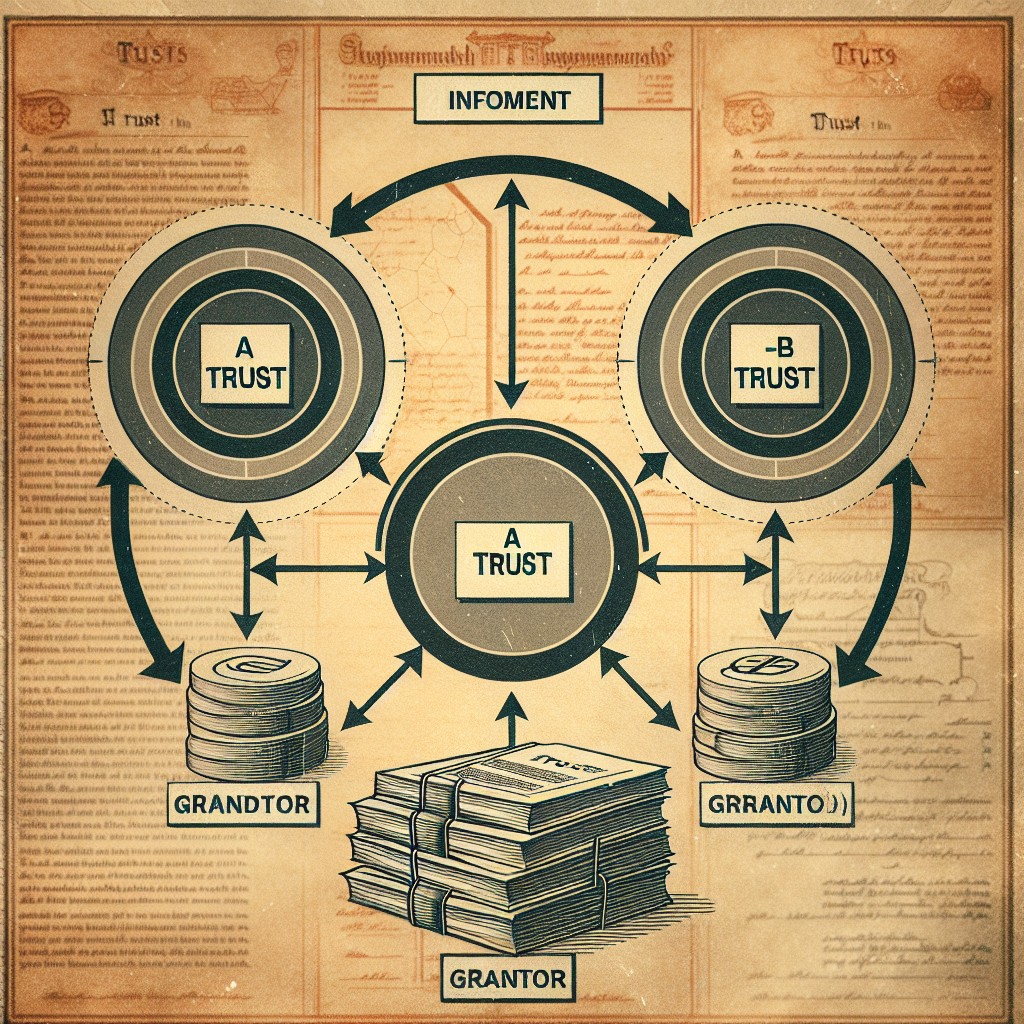Understanding A-B Trusts: A Simple Guide
When it comes to estate planning, an A-B trust can be a valuable tool for many families. In this guide, we’ll break down what an A-B trust is, how it works, and the benefits it offers. Whether you’re just starting to think about estate planning or looking to refine your existing plans, understanding A-B trusts is important.
What is an A-B Trust?
An A-B trust is a type of trust often used by married couples to minimize estate taxes and ensure a smooth transition of assets after one partner passes away. It’s called an “A-B trust” because it consists of two parts: Trust A and Trust B.
Trust A: The Survivor’s Trust
Trust A, also known as the survivor’s trust, is established for the surviving spouse. Upon the death of the first spouse, all assets are transferred into Trust A. The surviving spouse has complete control over these assets and can use them as needed. This trust keeps all assets available for the surviving spouse’s needs, helping them maintain their quality of life.
Trust B: The Bypass Trust
After the death of the first spouse, assets that exceed a certain exempt amount are placed into Trust B, commonly referred to as a bypass trust. The primary goal of Trust B is to bypass the estate of the surviving spouse, thus reducing potential estate tax liabilities. The assets in Trust B are usually not included in the survivor’s estate when they pass away, allowing them to be passed on to heirs without additional taxes.
How A-B Trusts Work
Here’s a simple version of how A-B trusts function:
-
Creating the Trust: When a married couple creates an A-B trust, they are effectively preparing to manage their assets and reduce future estate taxes.
-
First Death: Upon the death of the first spouse, the trust is split into two parts: Trust A, which benefits the surviving spouse, and Trust B, which contains the deceased spouse’s assets.
-
Tax Benefits: The assets in Trust B remain untaxed, up to the exemption limit set by the IRS. This means they do not contribute to the surviving spouse’s estate, helping to reduce overall estate taxes when the second spouse dies.
-
Continued Control: The surviving spouse retains control over Trust A, using it for their benefit. The trustee of Trust B manages those assets according to the wishes outlined in the trust documents.
Benefits of Using an A-B Trust
Establishing an A-B trust can offer several benefits:
1. Tax Efficiency
One of the primary reasons couples opt for an A-B trust is to minimize estate taxes. By placing a portion of the estate in Trust B, couples can shelter higher-value assets from being taxed after the surviving spouse’s death.
2. Asset Protection
Trust B can protect the assets from creditors or legal actions against the surviving spouse, ensuring that the intended beneficiaries receive their inheritance.
3. Control Over Distribution
Couples have the ability to decide how and when their assets are distributed. This flexibility can prevent potential disputes among heirs.
4. Ease of Transition
Using an A-B trust simplifies the estate administration process after a spouse’s death. It lays out how assets are to be divided and reduces the chances of family conflict.
5. Maintaining Privacy
Trusts are not made public in the same way wills are, so using an A-B trust can help maintain privacy regarding one’s financial matters.
Who Should Consider an A-B Trust?
An A-B trust may be a good option for married couples who:
- Have substantial assets that could lead to a significant estate tax burden.
- Wish to provide for each other while also ensuring that their heirs benefit from their wealth.
- Want to establish specific guidelines for how assets will be managed and distributed.
Things to Consider
While A-B trusts offer many advantages, they are not for everyone. Here are a few considerations:
-
Cost: Setting up an A-B trust can be more expensive than preparing a simple will. There are costs associated with drafting the trust and possibly ongoing administrative fees.
-
Complexity: Managing a trust can be more complicated than having a simple estate plan. It may require the expertise of legal and financial professionals to navigate effectively.
-
State Laws: The effectiveness of an A-B trust can be influenced by state laws regarding estate taxes. Couples should consult an estate planning attorney familiar with their state’s regulations.
Final Thoughts
Understanding the basics of A-B trusts is crucial for anyone looking to effectively manage their estate through proper planning. By leveraging the benefits of an A-B trust, couples can ensure that their assets are protected and passed on to their heirs as intended.
If you’re considering whether an A-B trust is right for you, it’s a wise idea to consult with an estate planning professional. They can help tailor a solution that fits your unique needs.
Lastly, if you’re interested in exploring more financial strategies for asset management, visit Stock Pulsar. Educating yourself is a step towards a secure financial future for you and your family.



